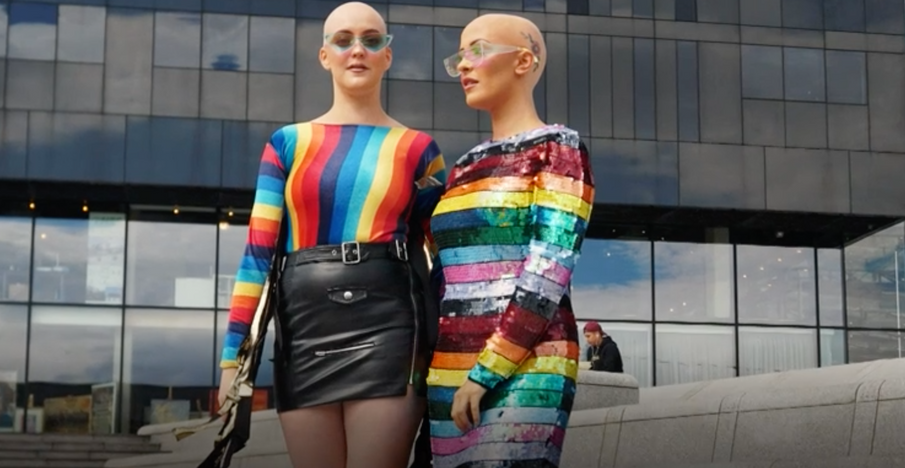The #FashionIsAlopecia campaign aims to increase confidence of people living with alopecia and ensure the condition is more accepted in the fashion industry
Last year, NHS England revealed a staggering 8 million women in the UK are affected by alopecia.
Models Eve Betts and Nichola McAvoy, who both live with alopecia, have pledged their support to the #FashionIsAlopecia campaign during a photoshoot in Liverpool as part of the launch. The women have revealed how their diagnoses affected their confidence from a young age.
Speaking to the BBC Radio Five Live, Nichola said, “There’s not a lot of models that have alopecia. I lost my hair at the age of 11 and for a long time I just didn’t deal with it. I would be so scared to go out and think, ‘oh my God, do they know?’
“I’ve also been dating and I have heard people have said stuff about the situation behind my back. That’s probably the stuff that hurt me the most, because it was like ‘I was never going to be accepted.’”
Eve has praised the route the fashion industry is starting to take by recognising more diversity among models.
She said: “People say I am strange looking, that’s fine because I probably am. I think fashion is slowly going in a direction where you can do and be whatever you want.
“But it has taken a long time to get to that stage I think. It’s normal, you can look nice whether you have got long hair, short hair or no hair.
The campaign, created by Claire Namukolo who herself experienced hair loss, seeks to make alopecia and hair loss in general more accepted in the fashion world.
Claire said: “I have lost hair several times through hair straightening, using hair relaxers and pulling my hair with braids.
“What really struck me was the sense of isolation, the shame as well. We already have the standards that have been laid out within the fashion industry on what a model on the catwalk should look like, which are ‘you should have long hair, you should have nice hair.’
“Fashion is alopecia, and we are going to use our campaign to blend it into the fashion industry and challenge perceptions.”
Our latest @bbc5live #NorthernStories film f/ @BBCNews is made by the brill't @EllieDoward
— Rozina Breen (@RozieBreen) September 4, 2018
It's about alopecia [which affects roughly eight million women in the UK] & the campaign to make it more acceptable i/the world of fashion. #Alopeciaisfashion https://t.co/GlFbV4Zj0g pic.twitter.com/x3PvfjOHBF
Speaking about what people with the condition can do to increase confidence, Life Coach Directory member Deborah Chalk says recognising when thoughts are becoming unhelpful and building a strong circle of support are crucial.
She said, “We have the lizard part of the brain, and it causes our body to react with the feeling of needing to fight or flee. It pipes up when we feel we can’t be ‘part of the tribe.’
“To counteract this, it’s important to start noticing how we are thinking about ourselves. What am I saying about myself? Are my thoughts freeing or imprisoning? This is the very first step, starting to notice unhelpful thoughts.
“If people are not managing with their day to day, then of course, they need to consider seeking professional help or a referral from a doctor. If you are coping with a condition, and maybe want extra support or confidence to reach your goals, you can seek help from a life coach.
“One thing people can do themselves is to have a good support network. It’s good to speak with people experienced in the same area.
“That doesn’t mean you have to speak only about the challenges of a condition, but also what you have achieved and what is possible.”
If you need to speak to somebody confidentially about confidence and achieving your goals, visit Life Coach Directory.
Picture credit BBC 5 Live


Comments